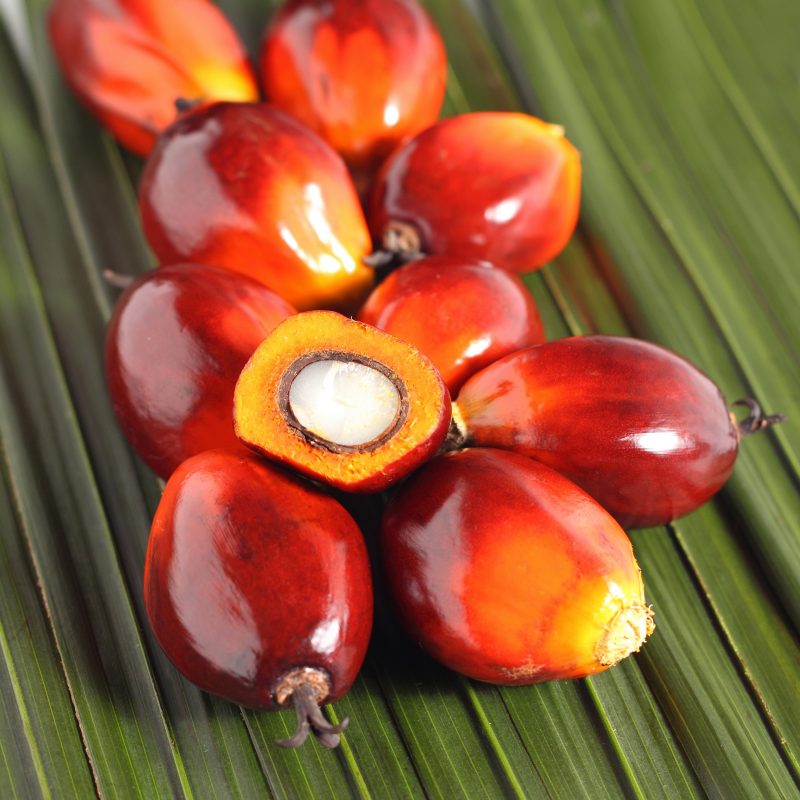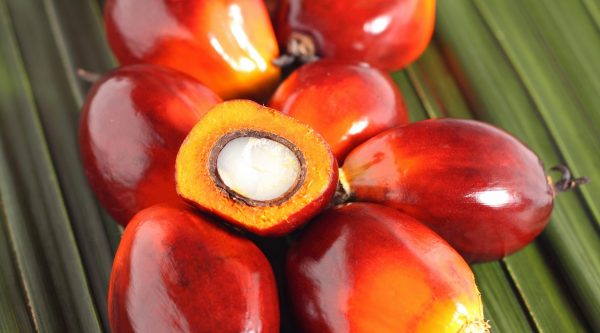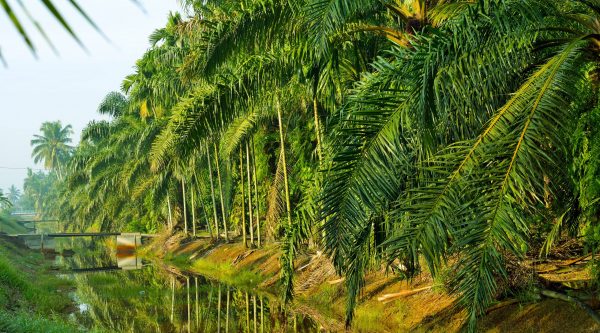
This site
is mobile
responsive
Malaysia is the second largest producers and exporters of palm oil in the world, supported by 4.49 million hectares of oil palm cultivation which produces 17.73 million tonnes of palm oil. This accounts for 11% of the world’s oils and fats production and 27% of export trade of oils and fats.
Hence, Malaysia assumes an important role to sustainably fulfil the global needs for edible oils and fats. Malaysia is actively promoting the adoption and implementation of sustainable and good agricultural practices. Integrating circular economy into the production of palm oil is an effective solution to optimise the usage of resources (raw materials) and minimise wastage from production, emissions and energy inefficiency. This is done by reducing, reusing and recycling materials that are commonly underutilises in the current linear economy. The model adopts a circular pathway which utilises usable material after the first processing cycle, by reintroducing it back into the second processing cycle of similar or different products as secondary raw materials. Ultimately, this process will translate into the optimisation of raw materials by continually adding value to its users along the supply chain.
Production of palm oil results in multiple types of secondary products (solid and liquid) in high volumes such as palm oil mill effluent (POME), empty fruit bunch (EFB), decanter cake and palm pressed fibres. These biomass products can be further utilised directly into producing new value-added products, or to be used as alternative energy sources to fuel the production facility.
The incorporation of this model will not only address the environmental aspect plaguing the palm oil industry, but also the economic concern of the supplies of primary raw materials. As the industry embarks into reusing its waste, the reliance on primary sources will diminish. This contributes to decreasing the need for new Circular Economy: The Way Forward for Palm-Based Industries June 2019 | 5 Industry plantation areas, which in turn reduce deforestation rate and carbon footprints. The introduction of new usages of secondary products will also bring about new economic opportunities. It could significantly disrupt the current energy industry by increasing the accessibility to biomass as an energy alternative; in tandem with Europe’s commitment to decarbonising its economy by reducing its reliance on fossil fuels.
Malaysia has been at the forefront of promoting the use of palm oil and palm biomass in the manufacturing sector. National Biomass Strategy 2020 (NBS2020) set a stretched target to turn palm biomass into higher value products that will create an incremental gross national income (GNI) of RM30 billion and 66,000 new jobs while attracting RM25 billion in investment and reducing carbon emissions by 12%.

The Government aims for all mills to have biogas plants and promotes the development of bio-based chemicals and biofuels as a means of turning waste into wealth.
A special purpose vehicle, namely MYBiomass Sdn. Bhd. (“MYBiomass”), initiated by the Malaysian Industry- Government Group for High Technology (MIGHT) has been established to pioneer high value green chemicals and materials biorefinery through coordinated aggregation. MYBiomass is a joint venture company between MIGHT, FGV Holdings Sdn. Bhd. and Sime Darby Plantation Bhd.
According to NBS2020, Malaysia’s palm oil industry is expected to generate about 100 million dry tonnes of solid biomass. This represents a massive deposit of untapped raw material ready to be reincluded in the circular economy as open burning is being discouraged by the Department of Environment (DOE).
Palm Biomass Ecosystem
To date, there are more than 50 companies involved in the processing of palm biomass into value-added products such as dried long fibres for mattresses and cushions, renewable energy pellets and briquettes, and animal feed. In recent years, there has been growing interest in utilising palm fibre as reinforced polymer composites for lowcost construction materials, furniture as well as pulp and paper production. This is especially attractive as palm fibre allows for the introduction of materials that are low cost, low weight, high specific modulus, renewability and biodegradability.
A notable local producer in this industry, Heng Huat Group Resources Berhad, is also one of the biggest palm fibre producers in Malaysia. The company is able to produce large quantities of oil palm EFB fibre, which are not only long, clean and fine, but also in uniformity through selfdesigned and installed custom-built production lines to ensure its quality for vast enduses such as medium density fiberboard manufacturing, moulded wares and composite material production, medium density fibre-board manufacturing and others.
Recognising the growth potential of this industry, the Government, through MIDA, is promoting the utilisation of palm biomass into valueadded products such as advanced biofuels, bio-based chemicals, biopolymers and second generation sugar. Tax incentives are offered as a stimulus to further drive the uptake by industry players. MIDA also continues to undertake several awareness programmes, such as the ones held in Penang and Sabah last year.
The circular economy model is undoubtedly the way forward for sustainable and ethical sourcing of palm oil. Despite the challenges of integrating it into the current linear model, the focus would be to create more value. There is much value to be extracted from reusing and recycling these raw materials. There is a need for better facilities, incorporation of more advanced technologies and substantial investments into the industry to ensure a competitive edge against traditional practices. The Government, together with the private sector, will need to work closely to operate these initiatives on a broader scale to make a difference for the country.
